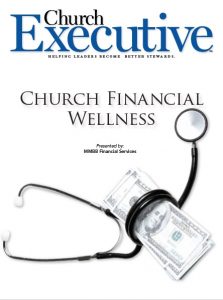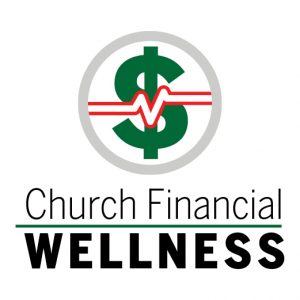
By Louis P. Barbarin, CPA
When it comes to taxes, clergy people often ask questions such as, “How can I save money or reduce my tax bill?” or “Will itemizing my deductions help reduce my tax bill?” or “How does the Housing Allowance affect my taxes?”
You might not realize it, but tax planning for ministers is quite different than tax planning for lay church workers. There are many factors that must be taken into consideration when planning and preparing your income taxes.
Clergy need to focus on their entire tax situation, not just on deductions. Most importantly, you need to determine if your compensation is set up to minimize your tax liability. The way in which compensation is allocated has a significant impact on the taxes that ministers must pay. When considering a minister’s cash salary, it is important to remember that cash salary is subject to federal, state and local income taxes.
There are also implications for Social Security and Medicare because ministers are considered self-employed for Social Security purposes. Social Security and Medicare taxes do not need to be withheld from the ministers pay by the church; they can enter into a voluntary withholding arrangement, but the church is not required to do so. Ordained staff pay a Self-Employment Contributions Act (SECA) tax. Churches are not permitted to pay the SECA tax for their pastors, but most churches assist ministers by providing them with a Social Security / Medicare tax offset to cover the equivalent of the Social Security / Medicare taxes that the church would pay on behalf of a lay church worker.
Understanding the Clergy Housing Allowance
The Clergy Housing Allowance is the most important tax benefit available to ministers who own or rent their homes. Unfortunately, there are ministers that either fail to claim this tax benefit or do not claim enough.
The federal tax code provides clergy with a tax exemption on the portion of their compensation that their church employer designates as housing allowance. For federal tax purposes, housing allowance is limited to the lesser of:
1) The amount designated by the church, or
2) The amount actually spent on housing by the minister for the year, or
3) The fair market rental value of a furnished house, plus utilities such as gas, electricity, oil, telephone and water.
It is important to remember the housing allowance is considered to be compensation for ministerial services and must be designated by the church is advance of the tax year in which the allowance will apply. A minister cannot exclude more than the church designates. Any amount a minister spends on housing that exceeds what the church designates cannot be used to reduce taxable income. If audited by the IRS, it is the responsibility of the minister to document actual housing expenses.

As a result of the new tax reform legislation, another area of concern for ministers are itemized deductions. In 2017, miscellaneous deductions on Schedule A were limited to the portion that exceeds 2% of the minister’s adjusted gross income. With the new tax law, miscellaneous deductions which exceed 2% of your AGI will be eliminated for the tax years 2018 through 2025. With new limits — such as the $10,000 cap on property, state and local tax (or sales tax, if higher) deductions — the overall standard deduction for your filing status, might end up being more. It is wise to consult your tax advisor before claiming any deductions.
This is where an Accountable Reimbursement Plan is beneficial. A minister would have to provide receipts and other documentation for out-of-pocket ministry expenses to the church and they are fully reimbursed.
To be accountable, a church’s reimbursement arrangement must comply with the following rules:
• An accountable reimbursement arrangement should be established by the church board or congregation in an appropriate resolution.
• Expenses must have a business connection — that is, the reimbursed expenses must represent expenses incurred by an employee while performing services for the employer.
• Employees are only reimbursed for expenses for which they provide an adequate accounting within a reasonable period of time (not more than 60 days after an expense is incurred).
• Employees must return any excess reimbursement or allowance within a reasonable period of time (not more than 120 days after an excess reimbursement is paid).
The income tax regulations caution that in order for an employer’s reimbursement arrangement to be accountable, it must meet a “reimbursement requirement” in addition to the four requirements summarized above. The reimbursement requirement means that an employer’s reimbursements of an employee’s business expenses come out of the employer’s funds and not by reducing the employee’s salary.
An accountable reimbursement plan accomplishes something else: it compels the minister and the church to accurately account for ministerial expenses with receipts and documentation.
Tax considerations related to retirement planning
Planning for retirement is another integral part of clergy tax planning. Ministers earn Social Security and Medicare credits through employment. Part-time employment (such as teaching at a college or speaking engagements) generates wage income that is subject to Social Security and Medicare taxes. This employment can increase a minister’s wage base for Social Security purposes.
Saving in a 403(b) retirement plan or an IRA is another tax and financial planning strategy. 403(b) plans, offered by churches and other non-profit organizations, are an efficient, cost-effective way to save for retirement and are like 401(k) plans maintained by for-profit entities. The plans let you defer a portion of your salary into individual accounts. The deferred salary is generally not subject to federal or state income tax until you make withdrawals at retirement. However, there are states that tax upfront and do not tax upon retirement; please check with your tax advisor to verify your state’s tax rules.
There are many resources available to ministers that aid with tax planning and preparation. Printed materials, such as the 2018 Church & Clergy Tax Guide by Richard R. Hammar, are available for purchase on Amazon.
Finding a qualified tax professional is also important. You need to be sure that you choose the correct tax professional to prepare your tax return. According to the Internal Revenue Service (IRS), most tax return preparers provide outstanding and professional tax service. However, each year, some taxpayers are hurt financially because they choose the wrong tax return professional. Visit the IRS website for tips for choosing a tax preparer.
You might also want to ask other ministers in your community for recommendations. And, be sure to ask local tax professionals if they work with ministers and are familiar with the tax laws that apply to ministers.
Planning throughout the year will benefit you and your church when it’s time to file your income tax return.
Louis P. Barbarin, CPA is Chief Executive Officer of MMBB Financial Services. Prior to assuming that role, he served as treasurer, CFO and deputy executive director.
Prior to joining MMBB, Barbarin served as deputy executive director and treasurer of American Baptist Board of Education and Publication.



